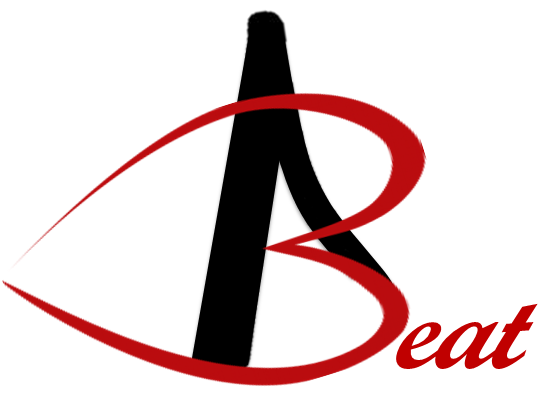Maureen Sheridan’s search for her biological mother began in the late 1990s, after she had a precancerous mole removed and her doctor suggested she look into her medical history. That research led her to the New York Public Library, where in 2001, sifting through a vast trove of vital records, Ms. Sheridan discovered the name she had been given at birth: Beth Lyons.
She does not know the name of her biological mother, who gave her up for adoption in 1976, because New York State laws dating to the 1930s deny all adoptees access to their original birth certificates. Still, Ms. Sheridan said, at least she learned that her mother had “cared enough to give me a name.”
With two sons of her own now, who have both had medical scares, Ms. Sheridan, 38, an administrator at the New School, said she felt even more compelled to unearth her medical history, even if she never connects with her biological mother.
“My original birth certificate sits in a building in New York City, and I’m not entitled to it,” she said. “I have a big issue with the fact that, as a group, we’re kept by law from accessing our own records.”
Advocates for adoptees like Ms. Sheridan are hoping that state lawmakers will soon reverse that. A bill being negotiated in Albany would give thousands of adoptees access to their original birth certificates while allowing biological parents to state whether they wish to be contacted directly, through an intermediary or not at all, and to file updated medical information in case their children ever seek it.
Versions of this legislation have kicked around Albany for two decades. But the enactment of similar laws in New Jersey and Connecticut over the past two months has fueled supporters’ hopes that New York will follow suit. Only 14 states have laws giving most adult adoptees access to their original birth certificates.
New Jersey’s new law gives biological parents until Jan. 1, 2017, to redact their names if they choose. New York lawmakers say they are also considering ways to allow biological parents to redact their names, among other potential compromises. The legislative session in Albany ends June 19.
Opponents of the New York bill say it would violate the privacy of biological mothers who may have never told their families about the children they relinquished, or simply do not wish to be contacted.
No law in New York State explicitly guarantees lifelong anonymity to biological parents. Opponents, though, caution against disentangling the law from its social context and upending the expectations of anonymity that many biological parents relied on when signing consent forms.
Testifying at a State Assembly hearing in January, John M. Czygier, a Suffolk County Surrogate’s Court judge, argued that the bill amounted to “giving the adopted child the unilateral right to come in and say, ‘We’re doing away with that promise that the judge made to you and the lawyer made to you when you gave up the child.’ ”
The current system, opponents contend, balances adopted children’s desires for information and their biological parents’ desire for privacy by letting adoptees petition the courts for their original birth certificates for “good cause,” leaving the decision up to a judge.
Adoptees can also seek out their biological parents through the state’s mutual-consent registry — but critics say doing so rarely results in a match.
The bill’s proponents say that denying adoptees access to their original birth certificates amounts to unequal treatment under the law.
At the State Assembly in January, Elizabeth J. Samuels, a law professor at the University of Baltimore testifying in favor of the bill, said she had studied dozens of adoption documents from the 1930s to the 1990s, and none explicitly promised lifelong anonymity. Rather, many restricted biological mothers from seeking out the children they had relinquished.
“This is consistent with why these records were closed,” she said, “to protect the adoptive families from possible interference or harassment, not to protect the birth parents’ privacy.”
Even if a lawyer or adoption agency guaranteed confidentiality, Ms. Samuels added, “they can’t make any promise with what the state will do with its records.”
Advocates for the bill, including Lorraine Dusky, 71, a writer in Sag Harbor, N.Y., argue that many biological parents would not object to it.
She said opponents were conflating two different things: the public shame — now largely a thing of the past — of an unwanted pregnancy, and the private matter of children’s knowing the identity of their biological parents.
Ms. Dusky was 22 and working as a reporter in Rochester in 1966 when she gave up her baby girl for adoption. She recalled doing “everything possible to keep my shame a secret” at the time — hiding her pregnant belly under sweatshirts, quitting her job, saying nothing to her parents in Michigan — but that she never wanted to conceal who she was from her child.
Anonymity was a condition imposed by the adoption agency. “Every fiber in my being recoiled against this,” she said, but she gave in.
A small number of biological parents clearly do want to remain unknown: In 2010, Illinois passed a bill, which like New Jersey’s, lets biological parents redact their names. Of 10,421 original birth certificates issued as of April, only 53 were redacted at the biological parents’ request, Illinois officials said.
Ms. Sheridan, who hopes identifying her biological mother will help answer medical questions about her two sons, said she would accept a redaction clause if need be, then fight to amend it. Allowing redaction, she said, unfairly favors biological parents.
“I didn’t have a choice 38 years ago,” Ms. Sheridan said. “Why is the choice all on one side and not the other?”










